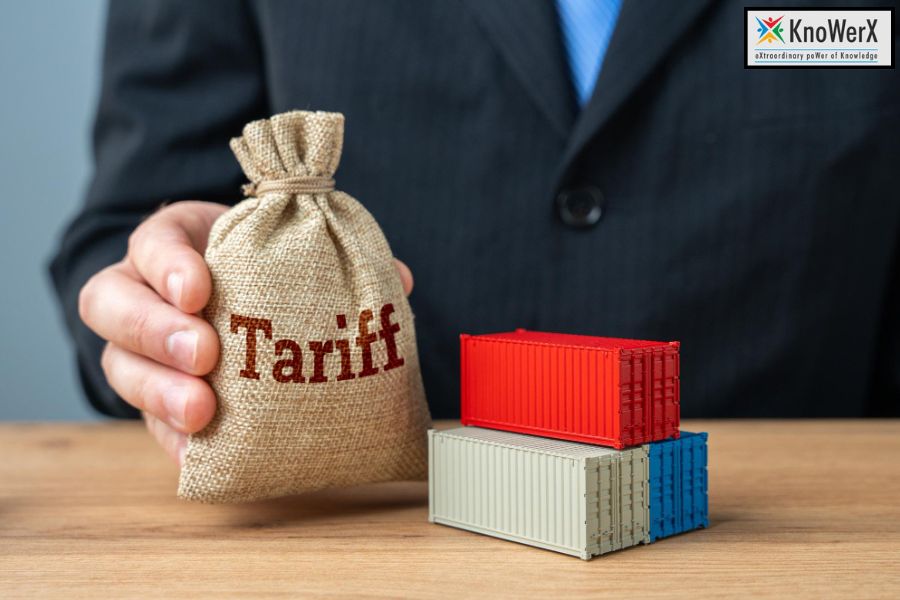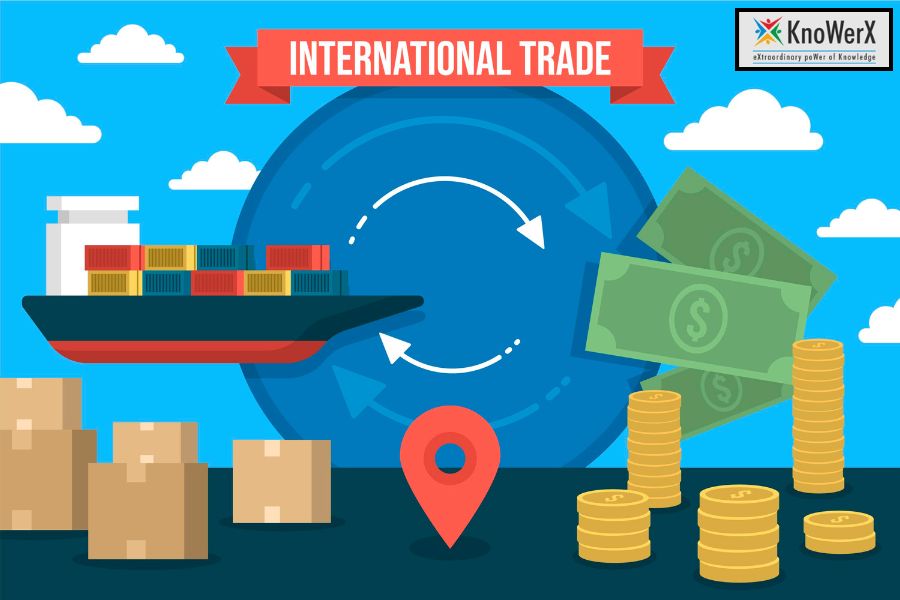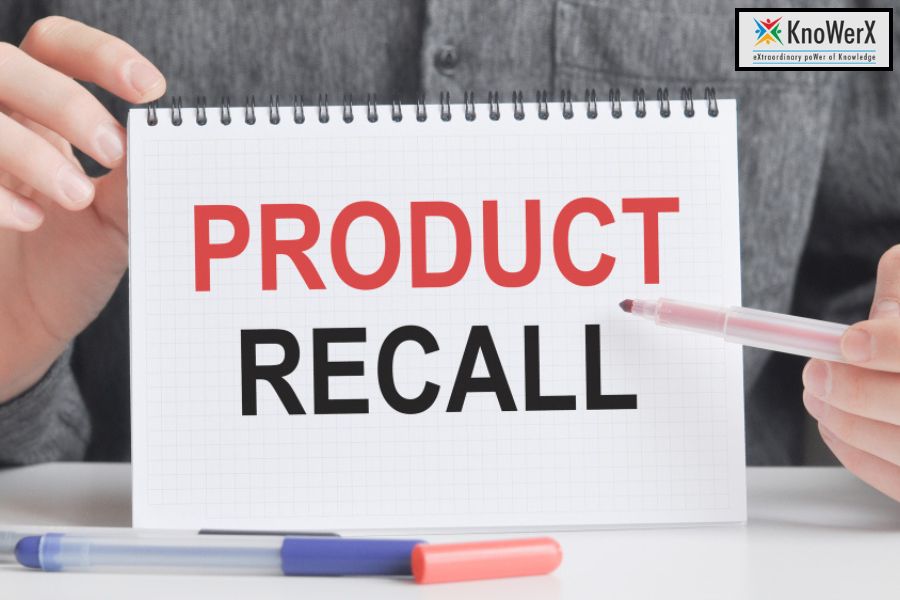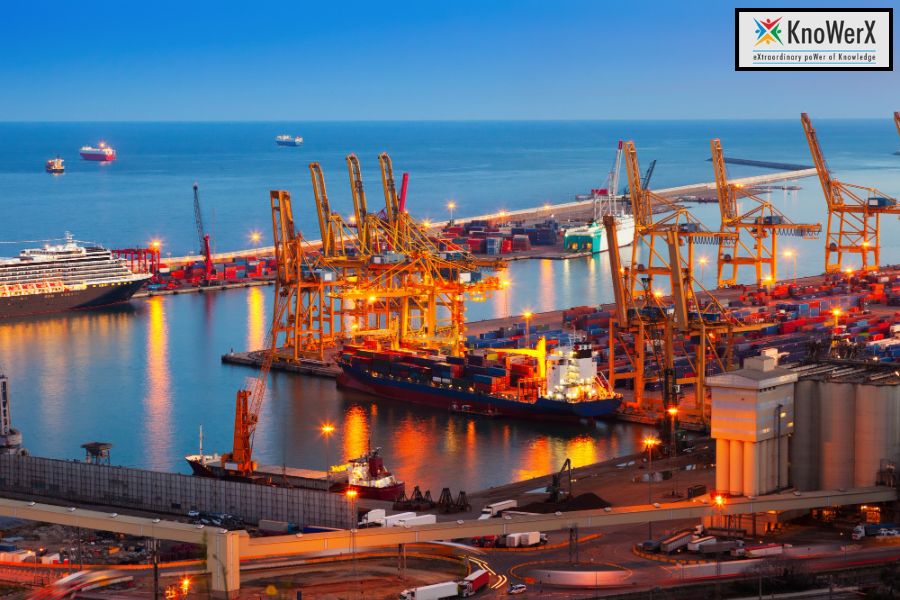How to Manage Tariff Impact on Global Sourcing Smartly

How to Manage Tariff Impact on Global Sourcing Smartly In today’s interconnected economy, global sourcing has become an essential part of supply chains. Companies rely on international suppliers for raw materials, components, and finished goods to reduce costs and expand market reach. However, shifting trade dynamics and government-imposed tariffs are reshaping global commerce. The Tariff Impact on Global Sourcing is one of the biggest challenges supply chain professionals face, as it directly affects pricing, supplier selection, and competitiveness. Managing tariffs smartly requires strategic thinking, adoption of technology, and a balance between cost efficiency and resilience. This article explores effective strategies, the role of analytics, and practical ways businesses can navigate tariff challenges. Understanding Tariff Impact on Global Sourcing What Exactly Are Tariffs? Tariffs are taxes imposed on imported goods, often intended to protect domestic industries or generate revenue. They can take different forms: Ad valorem tariffs: Based on the product’s value. Specific tariffs: A fixed fee per unit of goods. Safeguard duties: Temporary tariffs to protect local industries from sudden surges in imports. The Tariff Impact on Global Sourcing can disrupt cost structures and alter the attractiveness of international suppliers. Direct and Indirect Effects of Tariffs on Businesses The influence of tariffs goes beyond higher costs. Companies experience: Increased landed costs due to duties, handling fees, and customs charges. Supplier uncertainty as partners in tariff-heavy regions become less competitive. Pricing pressure because higher costs are passed to customers. Strategic shifts where sourcing decisions are re-evaluated. Industries Most Vulnerable to Tariff Fluctuations Some industries are more exposed to the Tariff Impact on Global Sourcing than others: Automotive: Vehicle manufacturers face tariffs on both parts and final products. Electronics: Semiconductors and components are heavily tariffed in some regions. Fashion and Apparel: Clothing companies face higher costs in cross-border trade. Agriculture: Import duties on food and raw materials disrupt supply chains. Smart Strategies to Manage Tariff Impact Diversifying the Supplier Network Depending on one country or region makes businesses vulnerable to tariff shocks. A diversified supplier network spreads risks and allows companies to switch partners quickly. For example, sourcing from both Asia and Europe reduces reliance on a single tariff-exposed region. Leveraging Free Trade Agreements (FTAs) Many governments have signed FTAs that eliminate or reduce tariffs. Aligning sourcing with these agreements minimizes the Tariff Impact on Global Sourcing and provides cost advantages. Nearshoring and Reshoring Opportunities Shifting production closer to the consumption market reduces exposure to tariffs. Nearshoring in regional hubs or reshoring back to domestic operations often balances tariff costs with faster delivery and better control. Negotiating with Suppliers Strategic negotiations with suppliers can mitigate tariff costs. Some suppliers may absorb part of the tariff or offer discounts on logistics and packaging to remain competitive. Exploring Duty Drawback Programs Companies that re-export products after importing components can benefit from duty drawback schemes. These refund tariffs and help reduce the Tariff Impact on Global Sourcing. Role of Technology & Analytics in Managing Tariff Impact Predictive Analytics for Trade Monitoring Tariff regulations change rapidly. Predictive analytics tools provide forecasts, simulate tariff scenarios, and help businesses plan sourcing strategies in advance. AI and Machine Learning in Supplier Selection Artificial intelligence can process vast amounts of trade and tariff data. Machine learning algorithms suggest alternative suppliers and routes to minimize the Tariff Impact on Global Sourcing. Blockchain for Transparency and Compliance Blockchain technology creates secure, tamper-proof records of trade transactions. By improving transparency, blockchain reduces compliance risks and customs delays. Digital Twins for Scenario Modeling Digital twins replicate supply chains in virtual environments. Companies use them to test the effects of new tariffs, optimize supplier routes, and redesign sourcing strategies without real-world disruptions. Balancing Cost with Resilience Why Cost-Only Strategies Fail While low-cost sourcing is attractive, tariffs can quickly erase savings. Solely focusing on cost leaves companies vulnerable to sudden tariff hikes or supply chain disruptions. Building Supply Chain Resilience Resilient supply chains balance efficiency with flexibility. This means: Working closely with suppliers for visibility. Building regional diversification. Maintaining buffer inventory to absorb shocks. Value-Driven Sourcing Over Purely Cost-Driven Sourcing Companies are increasingly shifting to value-based sourcing. Instead of choosing the cheapest supplier, they select partners who can guarantee reliability, compliance, and adaptability despite tariff changes. This reduces long-term risks tied to the Tariff Impact on Global Sourcing. Expanding the Perspective: Beyond Tariffs Geopolitical Risks and Trade Wars Tariffs often stem from geopolitical conflicts. Trade wars between major economies like the US and China illustrate how tariffs are used as bargaining tools, leaving global supply chains vulnerable. Currency Fluctuations and Tariff Costs Exchange rate volatility amplifies tariff costs. A weak local currency can make imports even more expensive, intensifying the Tariff Impact on Global Sourcing. Sustainability and Tariff Regulations Sustainability goals are increasingly linked with tariff policies. Countries impose eco-tariffs on non-compliant products, pushing businesses to adopt greener sourcing practices. Real-World Examples of Managing Tariff Impact Automotive Industry Adaptations Car manufacturers have diversified their supplier base across continents. By producing in multiple regions, they minimize tariff exposure and maintain competitiveness. Electronics Supply Chain Shifts Tech giants have relocated assembly from China to countries like Vietnam, India, and Mexico. This reduces tariff costs and creates alternative sourcing hubs. Fashion and Apparel Industry Response Fashion brands are adopting nearshoring strategies, producing closer to end markets. This shortens delivery cycles and reduces tariff-related costs. Future of Global Sourcing Under Tariff Pressure The Role of Policy and Trade Agreements The global tariff landscape is constantly evolving. Businesses must stay updated on trade agreements and align sourcing strategies accordingly. Rise of Regional Trade Blocs Regional blocs such as ASEAN, USMCA, and the EU offer tariff-free trade zones. Aligning with these blocs reduces the Tariff Impact on Global Sourcing. Technology as a Long-Term Enabler Digital transformation AI, IoT, blockchain will be central in helping companies adapt to tariff changes. Smart sourcing decisions supported by technology ensure agility and resilience. Frequently Asked Questions Ending Notes – Preparing Supply Chains for the Future with KnoWerX The Tariff Impact on Global Sourcing is not
How to Improve Quality with Six Sigma Team Formation

How to Improve Quality with Six Sigma Team Formation In any business, quality is the cornerstone of growth, customer satisfaction, and long-term success in six sigma. Yet achieving consistent quality is not an accident it is the result of structured strategies, trained professionals, and continuous improvement. One of the most effective approaches is Six Sigma team formation, a structured method to create dedicated groups focused on driving quality improvements and eliminating inefficiencies. At KnoWerX, an industry leader in Supply Chain Management Training, we’ve seen how the right training and Six Sigma principles empower professionals to lead projects that deliver measurable results. With over 33 years of collective expertise and decades of experience in education and consultancy, we believe that team formation is the heart of Six Sigma success. Below are practical tips on how to improve quality with Six Sigma teams. 1. Select the Right Mix of Roles The first step in effective Six Sigma team formation is assigning the right roles: Champions, Black Belts, Green Belts, and team members. Each plays a critical function in project execution. Champions align projects with business goals, Black Belts lead, Green Belts support execution, and team members provide process-level insights. A balanced mix ensures that the project is backed by both leadership direction and ground-level expertise. Tip: Avoid overloading teams with only senior managers. Include people who interact daily with the process for a holistic perspective. 2. Align Teams with Strategic Business Goals Quality improvement efforts often fail when projects are disconnected from larger organizational objectives. Six Sigma team formation should focus on issues that directly impact customer satisfaction, cost efficiency, or compliance. When team members see how their work ties into the company’s mission, motivation and accountability rise. Tip: Start with projects that have visible results like reducing delivery errors or cutting lead times to gain momentum. 3. Invest in Training and Certification Six Sigma is methodology-driven, requiring professionals to master DMAIC (Define, Measure, Analyze, Improve, Control) and statistical tools. Without proper training, even the most enthusiastic team will struggle. At KnoWerX, we specialize in equipping professionals with the knowledge and certifications needed to excel in Six Sigma roles. Tip: Encourage your teams to undergo structured training programs. Certification ensures they not only understand concepts but also apply them with confidence. 4. Foster Cross-Functional Collaboration Quality problems rarely exist within a single department. That’s why Six Sigma team formation should bring together members from diverse functions—procurement, operations, logistics, finance, and customer service. Cross-functional teams reduce silos, encourage collaboration, and provide well-rounded solutions. Tip: Regular cross-departmental workshops can enhance communication and ensure alignment during improvement projects. 5. Empower Teams with Data-Driven Decision Making Six Sigma thrives on data. When teams rely on gut feelings, errors creep in. Proper Six Sigma team formation requires not only assigning roles but also providing access to accurate data and analytical tools. Teams should learn how to collect, measure, and interpret data to identify root causes and track improvements. Tip: Equip teams with statistical software and dashboards so they can monitor project performance in real time. 6. Encourage Leadership Support and Mentorship No matter how skilled, teams need organizational support. Senior leaders play a pivotal role in Six Sigma team formation by providing resources, resolving roadblocks, and celebrating wins. Leadership involvement builds credibility and signals to employees that quality initiatives are a priority. Tip: Pair junior team members with experienced mentors to accelerate skill development and boost confidence. 7. Promote a Culture of Continuous Improvement Six Sigma is not a one-time initiative. It’s a journey toward excellence. A well-structured Six Sigma team formation process promotes continuous learning, feedback, and refinement. Teams should regularly share best practices and replicate successful solutions across other departments. Tip: Recognize achievements publicly. A culture that celebrates small wins encourages teams to pursue bigger challenges. 8. Measure and Sustain Results Improving quality is only half the battle; sustaining it is equally critical. Once a project is implemented, Six Sigma team formation must focus on monitoring controls, standard operating procedures, and ongoing audits. Teams that measure their results consistently ensure that gains don’t fade over time. Tip: Use dashboards and regular review meetings to keep improvements visible and sustainable. Why KnoWerX is Your Partner in Six Sigma Success At KnoWerX, we go beyond teaching concepts we prepare professionals to lead transformation. With 26+ years in consultancy and education, we have trained and guided companies in India and abroad to achieve higher efficiency, reduced costs, and improved customer satisfaction. Our training programs empower professionals with the tools to succeed in Six Sigma team formation and beyond. As a one-stop destination for certifications and domain knowledge, we ensure you not only learn best practices but also apply them effectively to boost your career and organizational excellence. Frequently Asked Questions Ending Notes Quality is not optional in today’s competitive business environment it’s a necessity. By investing in structured Six Sigma team formation, organizations can drive measurable improvements, eliminate waste, and enhance customer satisfaction. With the right training, leadership support, and culture, your teams can unlock the full potential of Six Sigma. At KnoWerX, we’re committed to walking this journey with you empowering individuals and organizations to embrace excellence and build a brighter future. Image Reference: Freepik Disclaimer: All trademarks, logos, and brand names are the property of their respective owners. All company, product, and service names used in this website are for identification purposes only. Use of these names, trademarks, and brands does not imply endorsement.
Learn the Understanding of Supply Chain Transformation

Learn the Understanding of Supply Chain Transformation Supply Chain Transformation is no longer a choice it is a necessity for organizations that aim to remain competitive in today’s fast-evolving global economy. Businesses that embrace transformation in their supply chains gain agility, efficiency, and resilience, while those that ignore it risk being left behind. At KnoWerX, we believe that learning the understanding of Supply Chain Transformation is the first step toward building smarter, more responsive systems. Below are some practical tips to help professionals and organizations grasp and implement this change effectively. What is Supply Chain Transformation? Start with the definition. Supply Chain Transformation refers to the fundamental rethinking and redesign of supply chain processes, structures, and technologies to achieve better performance and customer satisfaction. It is not just about incremental improvements it is about shifting the way businesses operate in alignment with modern challenges such as digitalization, sustainability, and globalization. Key Drivers of Supply Chain Transformation Identify what drives the need for change. Several forces push organizations toward transformation: Digital Technology: Artificial Intelligence, IoT, blockchain, and automation are reshaping supply chains. Customer Expectations: Rising demand for faster delivery and personalization requires new supply chain models. Global Disruptions: Events like pandemics, trade wars, and geopolitical changes force organizations to adapt. Sustainability Goals: Companies must meet stricter environmental regulations and consumer expectations for green practices. Understanding these drivers will help you stay proactive rather than reactive. Core Elements of Transformation Focus on the pillars. Successful Supply Chain Transformation relies on these key elements: Process Redesign: Streamlining operations for efficiency and cost-effectiveness. Technology Adoption: Leveraging advanced tools for visibility and automation. Talent Development: Building skills among professionals to manage modern supply chains. Collaboration & Integration: Enhancing coordination among stakeholders. Data-Driven Decisions: Using analytics for forecasting, demand planning, and risk management. Steps to Achieve Transformation Break it down into actionable steps. Assess Current State: Analyze existing processes, strengths, and weaknesses. Define Clear Goals: Align supply chain objectives with overall business strategy. Leverage Technology: Invest in tools like ERP, AI, and predictive analytics. Upskill Workforce: Train professionals through industry-recognized certifications and programs (like those offered by KnoWerX). Implement Change Gradually: Avoid overwhelming the system start small and scale. Measure & Optimize: Use KPIs to track progress and refine strategies. Benefits of Supply Chain Transformation Highlight the advantages. Increased Efficiency: Optimized workflows reduce costs and save time. Agility & Resilience: Ability to adapt quickly to disruptions. Enhanced Customer Experience: Faster, more reliable deliveries. Sustainability: Environmentally responsible practices build brand reputation. Competitive Edge: Transformed supply chains become strategic differentiators. Challenges to Overcome Be prepared for obstacles. While transformation offers immense benefits, it is not without hurdles: Resistance to Change: Employees and stakeholders may be reluctant. High Costs: Investments in technology and training can be significant. Data Silos: Lack of integration between systems hampers visibility. Uncertainty: Market volatility makes long-term planning complex. The best way to overcome these challenges is through continuous learning, effective leadership, and expert guidance, areas where KnoWerX can play a crucial role. Future of Supply Chain Transformation Keep an eye on what’s next. The future of Supply Chain Transformation will be shaped by: End-to-End Digital Integration: Fully connected ecosystems powered by real-time data. AI & Predictive Analytics: Smarter forecasting and risk management. Sustainable Supply Chains: Greater emphasis on circular economy practices. Hyper-Personalization: Tailoring supply chains to individual customer needs. Collaborative Networks: Shared platforms across industries to boost resilience. Professionals who stay updated and skilled in these areas will remain ahead in their careers. Frequently Asked Questions KnoWerX: Your Partner in Supply Chain Transformation At KnoWerX, we understand that mastering Supply Chain Transformation requires more than just knowledge it requires the right mindset, tools, and training. With over 33 years of collective experience and 26+ years in education and consultancy, we provide professionals with the expertise to navigate this journey. Through our globally recognized certifications, training programs, and consultancy services, we empower supply chain professionals to adapt, innovate, and excel in an ever-changing business landscape. If you are ready to learn the understanding of Supply Chain Transformation, KnoWerX is your one-stop destination for knowledge, skills, and growth. Image Reference: Freepik Disclaimer: All trademarks, logos, and brand names are the property of their respective owners. All company, product, and service names used in this website are for identification purposes only. Use of these names, trademarks, and brands does not imply endorsement.
Learn the Importance of Transportation Management

Learn the Importance of Transportation Management Transportation is the backbone of any successful supply chain, and mastering it can transform the way businesses operate. Understanding the Importance of Transportation Management is crucial for organisations that aim to optimise efficiency, reduce costs, and stay competitive in today’s fast-paced market. Below are some practical tips to help you grasp why transportation management matters and how it impacts business success. 1. Know the Key Functions of Transportation Management One of the best ways to understand the Importance of Transportation Management is to explore its core functions. These include: Route planning and optimisation. Selecting the right mode of transportation. Managing carrier relationships. Ensuring compliance with regulations. Tracking and visibility of shipments. 👉 Tip: Focus on building strong systems for route optimisation and carrier collaboration, as these drive efficiency in both domestic and global markets. 2. Focus on Cost Reduction and Profitability Cost is always a driving factor in logistics. A major part of the Importance of Transportation Management lies in its ability to cut down unnecessary expenses. Efficient scheduling, fuel management, and smart use of technology can significantly reduce costs. 👉 Tip: Regularly analyse freight costs, use consolidated shipping where possible, and leverage data-driven decision-making to increase overall profitability. 3. Understand the Impact on Global Trade and E-Commerce With the rise of e-commerce and international trade, the Importance of Transportation Management has grown manifold. Effective systems ensure timely deliveries, maintain customer satisfaction, and allow businesses to expand globally. 👉 Tip: Use digital tools for real-time shipment visibility and adapt quickly to global trade disruptions. This enhances customer trust and positions your business competitively in the global marketplace. 4. Monitor KPIs in Transportation Management To truly measure the Importance of Transportation Management, businesses must track Key Performance Indicators (KPIs). Common KPIs include on-time delivery rate, transportation cost per unit, average transit time, and order accuracy. 👉 Tip: Set measurable KPIs, review them monthly, and use analytics to pinpoint inefficiencies. Continuous monitoring ensures your transportation strategy stays aligned with business goals. 5. Explore Career Opportunities in Transportation Management For professionals, the Importance of Transportation Management goes beyond business success it offers rewarding career prospects. Roles such as Transportation Planner, Logistics Coordinator, Freight Manager, and Supply Chain Analyst are in high demand globally. 👉 Tip: Stay ahead by pursuing professional certifications in Supply Chain and Transportation Management. This not only enhances skills but also boosts career growth in a competitive job market. 6. Embrace Technology and Automation in Transportation A modern supply chain cannot thrive without technology. Another way to realise the Importance of Transportation Management is by adopting automation and digital solutions such as Transport Management Systems (TMS), GPS tracking, and AI-driven analytics. These tools streamline operations, reduce human error, and boost overall efficiency. 👉 Tip: Invest in advanced TMS platforms that provide real-time visibility, predictive analytics, and automation to improve decision-making and enhance customer satisfaction. Frequently Asked Questions Ending Notes -KnoWerX : Your Partner in Supply Chain Excellence At KnoWerX, we understand the Importance of Transportation Management in shaping efficient supply chains. As an industry leader in Supply Chain Management Training, we provide professional programs that help individuals and organisations succeed. With over 32 years of collective experience and 25+ years in education and consultancy, our experts have trained and consulted for large companies in India and abroad. We are committed to delivering high-quality education at the best price in the industry. KnoWerX is your one-stop destination to learn best practices, gain domain knowledge, and achieve globally recognised certifications for professional growth. Image Reference: Freepik Disclaimer: All trademarks, logos, and brand names are the property of their respective owners. All company, product, and service names used in this website are for identification purposes only. Use of these names, trademarks, and brands does not imply endorsement.
How High Tariff Impact on Supply Chain Management

Trade War: How High Tariff Impact on Supply Chain Management Globalization has created deeply interconnected supply chains across the world. However, in recent years, rising trade tensions and retaliatory tariff measures have disrupted this harmony. One of the most prominent consequences of these conflicts is the High Tariff Impact that businesses face during a Trade War. For supply chain managers, procurement leaders, and business strategists, understanding these dynamics is no longer optional it’s an absolute necessity. At KnoWerX, we believe that professionals equipped with the right training and knowledge can transform these challenges into opportunities. With more than 32 years of collective experience in consultancy and education, our team has helped professionals in India and abroad strengthen their capabilities to deal with disruptions such as tariffs, inflation, and global trade conflicts. This article explores the multifaceted High Tariff Impact of a Trade War on supply chain management, while also offering strategies to mitigate risks and build resilience. Understanding the Concept of Trade War What is a Trade War? A Trade War occurs when nations impose tariffs or trade barriers on each other, typically in retaliation to protect domestic industries. While the intent is to boost local manufacturing, the result often spirals into higher costs, disrupted supply chains, and strained international relations. Why Trade Wars Matter for Supply Chains Modern supply chains span multiple continents. Raw materials may come from Asia, components from Europe, and final assembly in North America. When tariffs are imposed, the smooth flow of goods is disrupted, causing delays, cost escalations, and logistical challenges. The High Tariff Impact is therefore felt at every stage—from sourcing and production to delivery and customer satisfaction. High Tariff Impact: The Ripple Effect on Supply Chain Management The High Tariff Impact on supply chains goes beyond just higher prices. It creates a domino effect that touches every aspect of operations. Rising Production Costs Tariffs on imported raw materials drive up manufacturing costs. Companies face a tough choice: absorb the cost or pass it on to consumers. Supply chain managers are under immense pressure to optimize efficiency and reduce waste. Supplier Disruptions and Re-Evaluation Companies dependent on foreign suppliers are forced to re-negotiate or switch. In a Trade War, sourcing from tariff-affected regions becomes unsustainable. Businesses must develop supplier diversification strategies to reduce dependency. Inventory Stockpiling Challenges To avoid future tariff hikes, businesses often stockpile inventory. This ties up working capital and creates warehousing pressure. Ineffective inventory planning can lead to both overstock and shortages. Complex Logistics and Customs Delays High tariffs often bring stricter customs checks. Transportation costs rise due to new trade routes. Lead times extend, making supply chain forecasting harder. Shrinking Profit Margins Increased costs at every stage—from procurement to logistics—erode profits. Companies struggle to remain competitive in price-sensitive markets. India–U.S. Trade War: The Ongoing High Tariff Impact The recent escalation of the India–U.S. Trade War has created ripples across global supply chains. With the U.S. imposing tariffs of up to 50% on Indian exports—particularly in textiles, agriculture, and energy—the High Tariff Impact is already visible. Indian textile exporters, for instance, report a 50% drop in cotton yarn purchases due to higher costs, forcing the government to temporarily remove import duties on cotton to support garment manufacturers. Meanwhile, talks around a Bilateral Trade Agreement (BTA) have stalled, delaying much-needed relief for businesses caught in tariff crossfire. Economists warn that the combined effect of lost exports, weakening currency, and inflation could trim India’s GDP growth, while pushing companies to relocate manufacturing overseas. At the same time, India is exploring diversification strategies by strengthening trade ties with the EU, ASEAN, and even China, to cushion against the severe High Tariff Impact from the U.S. Case Studies: Trade War in Action The U.S.-China Trade War The U.S.-China Trade War is a textbook example of how tariffs can impact global supply chains. Tariffs on steel, aluminum, electronics, and automotive components forced companies to reconsider their sourcing strategies. American companies that relied heavily on Chinese imports faced severe High Tariff Impact, leading to supply disruptions and increased operational costs. The Brexit Example Although not always labeled as a Trade War, Brexit introduced tariff-like trade barriers between the UK and EU. Businesses experienced similar disruptions: higher costs, delays at borders, and the need to re-map supply chains. Strategies to Minimize High Tariff Impact Forward-thinking organizations do not just react—they prepare. Here are some strategies supply chain professionals can adopt: Supplier Diversification Avoid over-reliance on one country or supplier. Build a network of alternate suppliers across regions. Reduce vulnerability during a Trade War. Nearshoring and Local Sourcing Bringing production closer to home reduces exposure to tariffs. Though initial costs may be high, long-term savings offset the High Tariff Impact. Advanced Forecasting with Technology AI and predictive analytics help forecast tariff risks. Scenario planning ensures businesses are not caught off guard. Technology can simulate supply chain disruptions to test resilience. Strategic Inventory Management Balance stockpiling with lean inventory principles. Use advanced warehouse management systems for efficiency. Avoid tying up too much capital in goods. Training and Skill Development Supply chain professionals must stay updated with best practices. Training programs at KnoWerX help professionals adapt to new challenges. Certifications in supply chain management enhance decision-making during uncertain times. Building Resilient Supply Chains in a Trade War Era Resilience has become the cornerstone of modern supply chains. Businesses that survive a Trade War and manage the High Tariff Impact effectively are those that invest in building flexibility and agility into their operations. Key Elements of a Resilient Supply Chain Flexibility in Sourcing: Quickly shifting suppliers across regions when tariffs rise. Digital Visibility: Real-time tracking of goods and materials to forecast disruptions. Collaboration with Partners: Strong supplier and logistics partnerships ensure faster adaptation to changing trade policies. Risk Mitigation Planning: Scenario analysis to anticipate tariff hikes and create backup plans. By integrating resilience strategies, companies are not only reducing the High Tariff Impact but also gaining a competitive advantage in global markets. The Role of KnoWerX in Preparing Professionals At
Full Understanding of Product Recall in Business

Full Understanding of Product Recall in Business – Tips for Professionals In today’s competitive and highly regulated marketplace, a full understanding of product recall is not just a necessity; it’s a survival skill for businesses. Whether you operate in manufacturing, retail, pharmaceuticals, or food production, knowing how to manage a recall can mean the difference between protecting your brand and suffering long-term damage. Product recalls can happen to any business, and when they do, they often create financial strain, operational disruption, and reputational challenges. To help you stay prepared, here are practical tips covering the causes of product recalls, types of product recalls, and the process and impact of product recalls on businesses. 1. Identify and Prevent the Root Causes of Product Recalls A strong understanding of product recall starts with knowing why they happen in the first place. Some of the most common causes include: Manufacturing defects – Problems in the production process such as faulty assembly, poor workmanship, or contamination. Design flaws – Unsafe designs that lead to functional failures or safety hazards. Labelling errors – Incorrect usage instructions, allergen mislabelling, or missing safety warnings. Supply chain issues – Substandard raw materials, improper storage, or handling errors during transport. Tip: Introduce robust quality assurance processes and regular supplier audits. By catching defects early in the supply chain, you can reduce the likelihood of a recall before products even reach the market. 2. Understand the Different Types of Product Recalls To develop a understanding of product recall, you must know the classifications: Voluntary recalls – Initiated by the manufacturer or seller to remove a potentially dangerous product before regulators step in. Mandatory recalls – Ordered by government agencies when a product is proven unsafe. Consumer-level recalls – Where customers are contacted directly to return or replace the product. Retailer-level recalls – Where defective products are removed from store shelves before reaching the end consumer. Tip: Establish clear protocols for internal decision-making so your organisation can act quickly, whether the recall is voluntary or mandatory. 3. Follow a Clear Product Recall Process The recall process should be systematic to reduce risk and restore trust. The steps generally include: Detection – Identify a defect or safety issue through testing, customer complaints, or regulatory inspection. Assessment – Determine the severity, potential harm, and extent of the problem. Notification – Alert regulatory authorities, distributors, retailers, and customers. Product Retrieval – Collect faulty products from warehouses, stores, and customers. Root Cause Correction – Implement permanent fixes to prevent a repeat occurrence. Tip: Maintain a documented recall plan as part of your crisis management strategy so that every department knows its role and responsibilities when a recall is triggered. 4. Minimise the Impact on Your Business A major part of the understanding of product recall is recognising its potential business impact: Customer trust erosion – Negative media coverage can damage your brand image. Operational disruption – Recalls can halt production lines, delay new launches, and cause bottlenecks. Financial strain – Costs can include product retrieval, destruction, replacement, legal fees, and potential fines. Regulatory consequences – Failure to act quickly and transparently may lead to lawsuits or stricter inspections. Tip: Use transparent communication to reassure customers and stakeholders. Offering prompt refunds or replacements can help mitigate damage to your reputation. 5. Prepare Your Workforce for Product Recalls A recall response is only as strong as the team behind it. Training employees on the understanding of product recall ensures a faster, more compliant response when issues arise. Tip: Conduct simulation drills and cross-departmental training so your staff knows how to respond under pressure. Collaborating with industry experts like KnoWerX can help your organisation gain best-practice insights for recall prevention and management. 6. Monitor and Improve Recall Readiness Your business should always be in a state of readiness for potential recalls. This requires ongoing monitoring of product performance, customer feedback, and supplier compliance. Tip: Incorporate technology such as product traceability systems, ERP tools, and AI-powered defect detection to catch issues early and speed up the recall process if needed. Frequently Asked Questions Ending Remarks Mastering the understanding of product recall means much more than simply reacting to an incident it’s about prevention, preparation, and protection. By knowing the causes, understanding the types, following a clear process, and managing the impact effectively, businesses can safeguard their reputation and maintain customer trust. At KnoWerX, we provide professionals with the expertise, tools, and strategies needed to handle recalls efficiently while strengthening overall supply chain management. With over 33 years of combined industry experience and a legacy of training professionals across India and abroad, we are committed to equipping you with the skills to navigate challenges and achieve excellence in your career. Image Reference: Freepik Disclaimer: All trademarks, logos, and brand names are the property of their respective owners. All company, product, and service names used in this website are for identification purposes only. Use of these names, trademarks, and brands does not imply endorsement.
Build Your Path with Online Certification in Logistics

Build Your Path with Online Certification in Logistics A career in logistics is more than just managing the movement of goods; it’s about creating seamless connections that keep global supply chains running smoothly. For professionals aiming to excel in this field, an Online Certification in Logistics offers the perfect stepping stone. It provides the knowledge, credibility, and skills needed to stay competitive in a rapidly evolving industry. Unlike traditional programs, online certifications give you the flexibility to learn while continuing with your professional commitments. Here are some valuable tips to help you make the most of your certification journey. Understand the Key Topics Covered The first step to success is knowing what to expect from an Online Certification in Logistics. Most reputable programs are designed to cover a wide range of topics relevant to today’s business environment. You can expect to learn about: Transportation and Distribution Management – Strategies for moving goods efficiently across domestic and international markets. Warehousing and Inventory Control – Ensuring the right products are stored and delivered at the right time. Supply Chain Optimisation – Reducing costs and improving responsiveness. Reverse Logistics and Sustainability – Handling returns and minimising waste. Technology Integration – Using tools like ERP, AI, and automation in logistics. By reviewing the program content before enrolling, you ensure that the certification aligns with your career goals and equips you with practical insights. Recognise the Benefits of Certification Earning an Online Certification in Logistics is more than an academic milestone—it’s an investment in your professional future. Here are a few benefits you can expect: Professional Credibility: Certification demonstrates your commitment to excellence in logistics. Career Advancement: Employers value certified professionals for specialised roles. Flexibility: Online programs allow you to study at your own pace, making it easier to balance learning with work. Problem-Solving Edge: With a deeper understanding of logistics processes, you’ll be able to identify issues and implement effective solutions quickly. These advantages position you as a strong candidate for leadership roles in the industry. Explore Recognised Programs like APICS CLTD If you want your certification to carry international recognition, consider pursuing the APICS CLTD (Certified in Logistics, Transportation, and Distribution) credential. This program is highly regarded across industries and is specifically designed for professionals who want to deepen their knowledge of logistics, transportation, and distribution management. The APICS CLTD equips you with globally relevant expertise and significantly improves your chances of landing roles in multinational corporations. Adding this certification to your profile not only validates your skills but also sets you apart in a crowded job market. Focus on Skills You Will Gain One of the most valuable aspects of an Online Certification in Logistics is the wide range of skills you develop during the program. Beyond theoretical knowledge, you’ll gain: Analytical and Strategic Thinking – The ability to assess logistics processes and improve them. Decision-Making Skills – Making informed choices during supply chain disruptions. Technology Proficiency – Using digital tools, automation, and logistics software effectively. Cost and Resource Management – Optimising operations to reduce waste and maximise efficiency. Crisis Management – Responding effectively to unforeseen challenges like delays or shortages. These skills ensure that you don’t just understand logistics but can actively contribute to organisational growth and efficiency. Map Career Opportunities After Certification Completing an Online Certification in Logistics opens a wide array of career opportunities. Certified professionals are highly sought after for positions such as: Logistics Manager – Overseeing end-to-end logistics operations. Transportation Planner – Designing efficient transport strategies. Warehouse Operations Specialist – Managing storage and order fulfilment. Supply Chain Analyst – Using data to improve logistics processes. Distribution Manager – Coordinating goods movement across regions. Since logistics is an essential function for every business sector manufacturing, retail, healthcare, e-commerce, and more career stability and global opportunities are guaranteed. Choose the Right Training Partner The success of your journey depends largely on where you pursue your certification. Choosing a trusted training provider ensures that you not only earn a certificate but also gain real-world knowledge. At KnoWerX, we pride ourselves on being an industry leader in Supply Chain Management training. With over 32 years of collective experience and 25+ years in education and consultancy, our team has worked with leading companies in India and abroad. We offer high-quality programs, including the prestigious APICS certifications, tailored to empower professionals with the best practices in logistics and supply chain management. Our mission is simple: to provide world-class education at the best possible value. Frequently Asked Questions Ending Notes Building a successful career in logistics starts with taking the right steps toward professional development. By pursuing an Online Certification in Logistics, you equip yourself with industry-relevant knowledge, globally recognised credentials, and the confidence to excel in diverse roles. Whether your goal is career advancement, skill enhancement, or global recognition, the right certification program can help you achieve it. At KnoWerX, we are committed to guiding you along this journey. Our professional training programs are designed to transform ambitious individuals into industry leaders. With us as your partner, your path in logistics will be one of growth, expertise, and long-term success. Image Reference: Freepik Disclaimer: All trademarks, logos, and brand names are the property of their respective owners. All company, product, and service names used in this website are for identification purposes only. Use of these names, trademarks, and brands does not imply endorsement.
Benefits of SCM Online Course for New-Age Pros

Benefits of SCM Online Course for New-Age Pros In today’s fast-evolving business ecosystem, supply chains have emerged as the lifelines of global trade. From sourcing raw materials to delivering final products to customers, every step requires careful coordination. With increasing digitalisation and global competition, supply chain professionals must stay ahead of the curve. One effective way to do that is by upskilling through online training. The Benifits of SCM online course for modern professionals are vast from career growth and global recognition to digital agility and leadership readiness. Whether you’re an aspiring executive or an experienced manager seeking to upgrade your skills, SCM e-learning programmes can help you unlock your potential and seize new opportunities. Why Choose an Online SCM Course? Flexibility & Convenience One of the most compelling reasons to choose an online SCM course is the flexibility it offers. Unlike traditional classroom programmes that require strict attendance and fixed schedules, online courses allow you to learn at your own pace ideal for professionals managing jobs, families, or multiple commitments. For learners who may be located far from urban training centres, virtual classrooms are also more accessible. You can log in from anywhere and still benefit from global-standard education without relocating. Cost-Effective & Time-Saving Besides flexibility, online courses tend to be more cost-effective than in-person alternatives. You save not only on travel and accommodation but also on tuition fees. Many programmes offer value-added resources such as downloadable content, live instructor sessions, and community discussion forums. Moreover, online SCM certifications focus on real-world applications, enabling professionals to apply concepts immediately in their work environments. This quick integration of knowledge into practice is another critical factor behind the Benifits of SCM online course. Up-to-Date, Industry-Aligned Curriculum Today’s supply chain challenges such as global disruptions, inflation, and digital transformation—require cutting-edge knowledge and tools. Reputable online SCM platforms like KnoWerX keep their curriculum updated with the latest industry frameworks, analytics tools, and case studies. From SCOR models to risk management strategies, you gain exposure to real-world business scenarios. These practical insights elevate your understanding far beyond textbook theory. Skills You Gain from SCM Online Courses Strategic Sourcing & Procurement Strategic sourcing is a vital component of supply chain success. An SCM course introduces you to techniques like supplier segmentation, cost modelling, and vendor contract negotiation. These skills are invaluable when working in procurement, operations, or supply chain planning roles. Inventory Management & Demand Forecasting One of the most tangible Benifits of SCM online course programmes is the knowledge of inventory control techniques. You’ll learn how to optimise inventory levels using ABC classification, EOQ models, and safety stock calculations ensuring service levels while minimising excess stock. Demand forecasting modules teach you how to use historical data, market insights, and statistical tools to predict future needs, improving customer satisfaction and profitability. Logistics, Distribution & Transportation Online SCM courses provide in-depth exposure to logistics functions such as warehousing, transport optimisation, multimodal shipping, and last-mile delivery. You’ll gain insights into how global supply chains operate across regions, how customs and documentation impact flow, and how technology enables real-time tracking. ERP & Supply Chain Software Tools Digital fluency is now a must-have skill in supply chain roles. Through platforms like KnoWerX’s Certifications & Training, you get introduced to ERP systems such as SAP, Oracle, and Microsoft Dynamics. Some courses also integrate supply chain simulation games and modelling tools to give you hands-on experience in real-world scenarios. Analytics, KPIs & Decision-Making Modern SCM roles demand strong analytical capabilities. Online courses help you understand performance metrics like fill rate, OTIF (on-time-in-full), inventory turnover, and working capital. These indicators are vital in making strategic supply chain decisions. Impact of SCM Training on Your Career Job Market Competitiveness Certifications from respected institutes give you a significant edge during recruitment. Recruiters actively seek candidates who possess globally recognised credentials like CSCP, CPIM, or CLTD available through KnoWerX, India’s Premier Elite APICS partner. Whether you’re aiming for a promotion, switching industries, or stepping into leadership roles, SCM training signals your readiness to take on responsibility. Higher Salary Potential Studies consistently show that professionals with supply chain certifications earn more than their uncertified peers. By developing skills that directly impact business performance like demand planning, cost reduction, and risk management—you can justify higher pay and added value in the organisation. Global Career Versatility From FMCG to automotive, healthcare to e-commerce supply chain is central to nearly every industry. With the Benifits of SCM online course, you gain a skillset that is transferable across domains and geographies. This broad applicability makes SCM an attractive career path for global-minded professionals. Confidence through Real Case Studies Case-based learning forms the heart of many SCM courses. You’ll analyse complex supply scenarios and devise actionable strategies. These exercises not only sharpen your decision-making but also prepare you to lead during real crises like raw material shortages or freight disruptions. For ongoing industry insights, KnoWerX also shares valuable thought leadership through its Supply Chain Blog. Benifits of SCM Online Course for New-Age Professionals Adapt to a Digitally Disruptive World With AI, IoT, blockchain, and big data transforming supply chains, staying updated is not optional—it’s essential. Online courses help you master modern digital tools and concepts like DDMRP (Demand Driven MRP), predictive analytics, and SCOR modelling, making you future-ready. Bridge the Theory-Practice Gap University education often lacks exposure to practical business challenges. The Benifits of SCM online course include applied learning through simulations, real-time assignments, and expert webinars, helping you transition from academic knowledge to actionable expertise. Join a Global Learning Community Online SCM courses connect learners from around the world. This interaction with professionals from diverse sectors creates a robust network of peers, mentors, and future collaborators. Receive Industry-Recognised Certification When you choose an accredited provider like KnoWerX, you earn internationally respected credentials from APICS, DDI, and SCOR. These qualifications open doors not just in India, but across North America, Europe, and Asia-Pacific. Why Choose KnoWerX for SCM Training? 30+ Years of Expertise in SCM Training Established in 1992, KnoWerX
Global Supply Chain Networks: Trends to Watch in 2025

Global Supply Chain Networks: Trends to Watch in 2025 Globalisation today rests on Global Supply Chain Networks intricate webs that span continents, industries, and technologies. In this article, we explore why Supply Chain Networks matter more than ever, the trends shaping them, the challenges in managing them, the technologies transforming them, and strategies for resilience. The conclusion reflects on these insights from the perspective of KnoWerX – An Institute of Supply Chain Management. What Are Global Supply Chain Networks? Definition and Core Components Global Supply Chain Networks refer to interconnected systems of suppliers, manufacturers, logistics providers, distributors, and customers across international borders. They include raw‑material sourcing, production facilities, freight and logistics hubs, warehousing, distribution centers, and retail channels. Industry Examples In the automotive industry, parts may come from Asia, with assembly in Europe and distribution globally. In electronics, components from Southeast Asia are shipped to factories in China and final products delivered worldwide. In pharmaceuticals, APIs are sourced globally, formulated in specialized plants, and distributed internationally. These cases highlight the complexity inherent in Global Supply Chain Networks. Role of Outsourcing and Trade Outsourcing manufacturing and leveraging international trade agreements help build networks, enabling firms to reduce costs, scale efficiently, access new markets, and diversify risk. Trends Shaping Global Supply Chains Sustainability and Green Supply Chains There is growing pressure on corporations to decarbonize their Global Supply Chain. Companies are pursuing ethical sourcing, carbon neutrality, and circular models such as recycling, refurbishment, and supplier audits to ensure sustainability. Digital Transformation Technologies like IoT, AI, machine learning, blockchain, and digital twins are driving the transformation of Global Supply Chain Networks. These tools improve forecasting accuracy, route optimisation, visibility, and transparency across multi‑tier suppliers. Nearshoring and Regionalisation Risk‑driven reshoring and nearshoring trends are reshaping Global Supply Chain Networks, as firms in North America and Europe reduce reliance on far‑flung manufacturing hubs and shift to regional models for agility and cost control. Circular Economy Models Circular economy practices reverse logistics, remanufacturing, and product life‑cycle traceability are increasingly embedded in Global Supply Chain Networks to meet sustainability goals. Customer‑Centric Fulfilment With customers demanding faster, personalised service, Supply Chain Networks are adapting to support last‑mile delivery, real‑time inventory visibility, and omnichannel fulfilment. Challenges in Managing Global Supply Chain Networks Geopolitical Instability Trade wars, tariffs, sanctions, and shifting trade agreements disrupt Global Supply Chain, forcing companies to reroute suppliers or re‑assess sourcing strategies. Supply Chain Disruptions Events like the COVID‑19 pandemic, Suez Canal blockage, and natural disasters expose the fragility of Global Supply Chain Networks, causing cascading delays and shortages. Labour Shortages and Cost Inflation Labour shortages, rising wages, and inflation drive up operational costs, especially in regions with tight labour markets. Regulatory and Compliance Issues Differing regulatory standards across countries on quality, environmental impact, safety, and trade complicate compliance in Global Supply Chain Networks. Visibility and Transparency Lack of visibility into multi‑tier suppliers, poor data sharing, and absence of traceability impede risk management across Global Supply Chain Networks. Technology in Global Supply Chains Artificial Intelligence & Machine Learning AI/ML tools enhance demand forecasting, optimise routing, and dynamically manage inventory in Supply Chain Networks, reducing waste and improving responsiveness. Blockchain Blockchain solutions provide tamper‑proof, auditable ledgers across Global Supply Chain Networks, boosting trust, traceability, and proof of provenance. Internet of Things (IoT) IoT sensors enable real‑time tracking of goods, environmental monitoring, and automated alerts across Global Supply Chain Networks, enhancing control and reducing errors. KnoWerX offers a dedicated Supply Chain Risk and Resiliency Certificate to help professionals manage such risks effectively. Cloud Computing Cloud‑based platforms facilitate unified data sharing, collaboration, and analytics across all nodes of Global Supply Chain Networks. Digital Twins & Simulation Digital twin models help simulate disruption scenarios and stress‑test Global Supply Chain Networks, allowing proactive contingency planning. Strategies for Building Resilient Global Supply Chains Diversification of Supplier Base Companies strengthen by diversifying suppliers across different countries and regions to avoid single‑point dependencies. Investment in Risk Management Establishing early warning systems, scenario planning, and risk mapping helps manage disruptions in Global Supply Chain Networks. Agile Logistics Planning Flexible routing, multi‑modal transport options, and adaptive fulfilment strategies enhance agility across Global Supply Chain Networks. Inventory Buffers & Nearshoring Strategic safety stock and regional locations help buffer Global Supply Chain Networks against demand volatility and supply interruptions. Collaboration and Partnerships Open communication, shared data platforms, and joint initiatives with suppliers and customers create more transparent and resilient Global Supply Chain Networks. KnoWerX’s APICS CSCP Certification empowers professionals to implement such collaboration strategies effectively. Why Understanding Global Supply Chain Networks Is Crucial Today Competitive Advantage: In a globalised economy, a deep understanding of Supply Chain Networks enables firms to operate more efficiently, enter markets faster, and innovate. Resilience to Disruption: Knowing your network deeply helps anticipate and respond to shocks be they geopolitical, environmental, or logistical. Sustainability and Ethics: As regulations and corporate responsibility demands rise, businesses must ensure ethical sourcing and traceability. Compliance Across Markets: Understanding how networks span regulatory regimes helps avoid compliance failures and penalties. Customer Expectations: Real-time tracking, transparency, and delivery reliability are expectations only a well‑managed Global Supply Chain Network can meet. Frequently Asked Questions Ending Notes: KnoWerX’s Role in Future-Ready Global Supply Chain Networks At KnoWerX – An Institute of Supply Chain Management, we understand that mastery over Global Supply Chain Networks isn’t just desirable it’s essential. Our certifications, including the APICS CSCP, Supply Chain Planning Certificate, and Procurement Certificate, are crafted to prepare supply chain professionals for today’s complex and volatile business landscape. Moreover, through our knowledge-rich blog, we consistently share the latest updates, trends, and strategies to help professionals stay ahead. Whether it’s mastering risk, digital tools, or global partnerships, KnoWerX provides the skills to build and lead resilient Global Supply Chain Networks with confidence. Image Reference: Freepik Disclaimer: All trademarks, logos, and brand names are the property of their respective owners. All company, product, and service names used in this website are for identification purposes only. Use of these names, trademarks, and brands does not imply endorsement.
Six Sigma Online Certification Today – Built Your Career Today

Learn Six Sigma with Online Certification Today In today’s business world, companies are under constant pressure to deliver high-quality products and services while reducing costs and improving efficiency. This demand has made Six Sigma Online Certification one of the most sought-after qualifications for professionals aiming to stand out in the competitive job market. Whether you’re in manufacturing, IT, healthcare, finance, or services, Six Sigma equips you with the skills to solve problems, streamline operations, and create lasting value. At KnoWerX, we understand that your time and career aspirations are precious. With over 33 years of combined industry expertise and 26+ years in education and consultancy, we provide high-quality, practical training that prepares you for real-world challenges. Here are our expert tips to help you make the most of your Six Sigma Online Certification journey. 1. Recognise the Importance of Six Sigma Certification Before enrolling, it’s essential to understand why Six Sigma is a valuable investment in your career. This globally recognised methodology focuses on improving processes, reducing defects, and enhancing customer satisfaction. It is not limited to one sector industries like manufacturing, banking, IT, healthcare, logistics, and supply chain all rely on Six Sigma-trained professionals. Study case studies of Six Sigma projects in your field. This will not only deepen your understanding but also help you communicate the value of your certification to potential employers. 2. Choose the Right Level of Six Sigma Certification One of the key features of Six Sigma Online Certification is its tiered structure, which allows you to advance progressively: White Belt: Basic introduction to Six Sigma principles. Yellow Belt: Awareness of key concepts and support roles in improvement projects. Green Belt: Competence in leading smaller projects and data analysis under guidance. Black Belt: Advanced knowledge to lead major projects, mentor teams, and solve complex problems. Master Black Belt: Strategic-level leadership, driving Six Sigma implementation across an organisation. Don’t rush to the highest level. Instead, master each stage and apply your learning to real projects before progressing. 3. Understand the Core Concepts & Methodologies The strength of Six Sigma lies in its structured approach to problem-solving. During a Six Sigma Online Certification course, you’ll typically learn: DMAIC (Define, Measure, Analyse, Improve, Control): A proven framework for identifying and solving process issues. Root Cause Analysis: Techniques to uncover the true source of problems. Statistical Process Control (SPC): Using data and metrics to maintain quality standards. Lean Principles: Removing waste and optimising workflows for better efficiency. Make use of online tools and software to practise Six Sigma techniques, even outside your course exercises. 4. Apply Your Learning to Real Situations It’s easy to pass an exam, but applying Six Sigma principles in a real-world environment is where the true value lies. Many professionals complete their Six Sigma Online Certification but fail to integrate the concepts into their daily work. Volunteer to participate in process improvement projects at your workplace. Even if it’s outside your usual role, the hands-on experience will strengthen your expertise and confidence. 5. Recognise the Benefits of Six Sigma Certification Completing a Six Sigma Online Certification opens multiple professional advantages: Enhanced analytical and decision-making skills. Increased employability across industries and countries. Better salary prospects and promotions. Ability to contribute to organisational growth and customer satisfaction. Include measurable results in your CV, such as cost savings or efficiency improvements you achieved using Six Sigma tools. 6. Explore the Career Scope & Opportunities With Six Sigma skills, you can pursue diverse roles such as: Quality Analyst / Manager Process Improvement Specialist Project Manager Operations Manager Business or Management Consultant These roles are available in top companies across manufacturing, IT, supply chain, healthcare, banking, and service industries. Join professional forums, attend industry webinars, and connect with Six Sigma-certified peers to expand your career network. 7. Select the Right Training Partner Not all training providers are equal. Your choice of institution can determine the credibility and practical value of your certification. KnoWerX stands out as a trusted name, offering globally recognised certification, expert trainers, and a curriculum tailored to real-world challenges. Our courses are flexible, affordable, and designed to fit your schedule without compromising quality. Verify the accreditation and industry recognition of the training provider before enrolling. Frequently Asked Questions Ending Notes – Why KnoWerX is Your Best Choice for Six Sigma Online Certification At KnoWerX, we go beyond theory. Our trainers are industry veterans with decades of experience in implementing Six Sigma across sectors. We’ve consulted for and trained professionals in leading organisations in India and abroad. Our focus is not just on helping you earn a certificate, but on equipping you with skills that deliver measurable results. With KnoWerX, you get: Comprehensive learning resources. Live online sessions with interactive discussions. Practical case studies and projects. Affordable pricing without compromising on quality. Final Word: If you’re ready to boost your career, now is the time to take action. Enrol with KnoWerX and start your journey toward excellence with a Six Sigma Online Certification that empowers you to make a measurable difference in any organisation. Image Reference: Freepik Disclaimer: All trademarks, logos, and brand names are the property of their respective owners. All company, product, and service names used in this website are for identification purposes only. Use of these names, trademarks, and brands does not imply endorsement.
